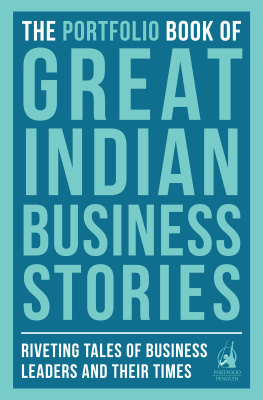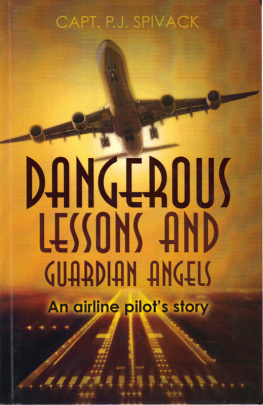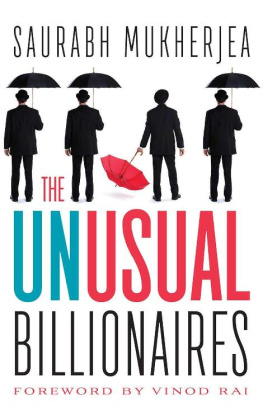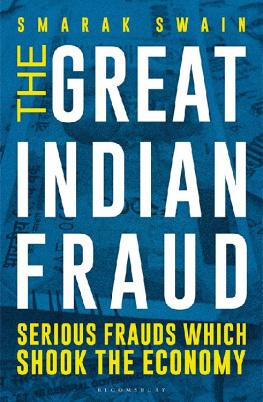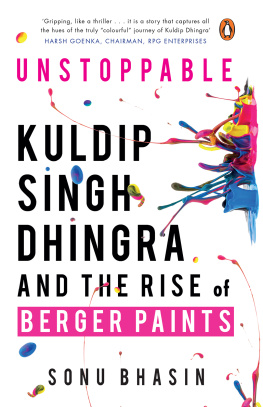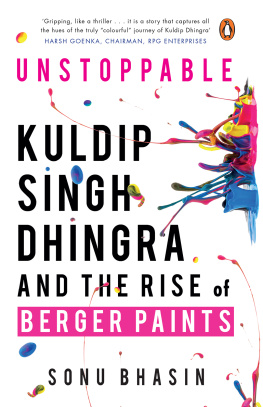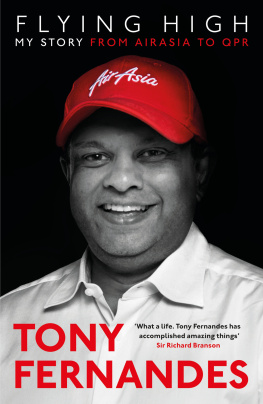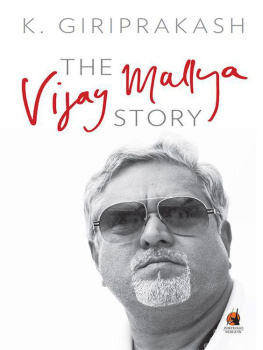Table of Contents
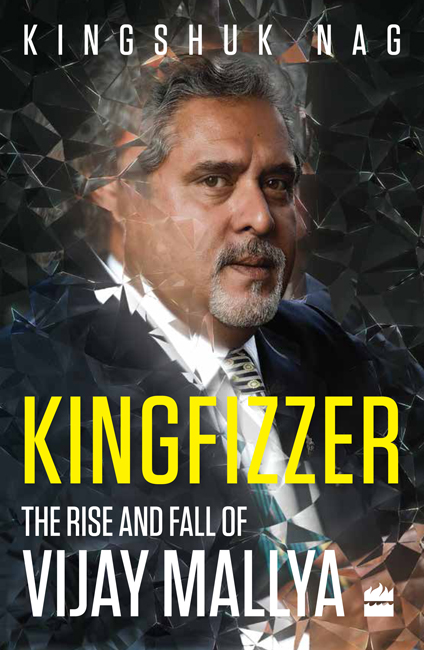
KINGFIZZER
The Rise and Fall of
Vijay Mallya
KINGSHUK NAG

For
Dr Chiranjib Kumar Basu (Khokhan dadu),
who gifted his portable Hermes typewriter to me
on learning that his college-going grandnephew
had become a freelancer for newspapers
Contents
1955: Vijay Mallya is born on 18 December to Vittal Mallya and Lalitha Ramaiah
1974: Appointed director on the board of United Breweries
1983: Inherits Vittal Mallyas businesses (liquor, beer, food products, pharmaceuticals, agro chemicals, paints) with an estimated annual turnover of Rs 350 crore on his death
1983 onwards: Begins ramping up Kingfisher beer
1985: Failed attempt to manufacture and sell EPABX systems
1985-86: Abortive bid to take over Shaw Wallace
Late 1980s: Starts and abandons pizza and cola-like drink businesses; starts UB Air, a private air taxi service
1988: Starts Kingfisher Derby
1988-90: Acquires engineering firms Best & Crompton and Western India Enterprises
1990: Acquires Mangalore Chemicals and Fertilizers
1991: Sells Berger Paints that he had inherited
1992: Takes over Kunigal Stud Farm started by Tipu Sultan two hundred years ago
1994: Plans for light rail transit systems for Bangalore
1995: Consolidates all liquor businesses into two companies (McDowell and Herbertsons); failed bid to brand West Windies cricket team as Kingfisher West Indies team; plans to enter mining, hotels
1996: Enters newspaper publishing
1998: United Breweries buys 50 per cent equity of Mohun Bagan and East Bengal; Mohammedan Sporting rejects bid
2000: Gets into making customized software
2000 onwards: Kingfisher beer becomes an internationally recognizable brand
2000-04: Acquisition of domestic breweries and distillers
2004: Work on UB City, billed to be Bangalores biggest commercial property, begins
2005: Kingfisher Airlines becomes airborne; acquisition of Shaw Wallace (including its brand Royal Challenge)
2006: Forms United Spirits by consolidating all his liquor businesses (Shaw Wallace, McDowell, Herbertsons, Triumph Distillers)
2007: Acquisition of Whyte & Mackay, Scotland-based Scotch manufacturing company; acquires Deccan Aviation, which operated Air Deccan
2008: Kingfisher merged into Deccan Aviation; gets into F1 motor racing; becomes franchisee for IPL team called Royal Challengers Bangalore
2009: Heineken buys equity in United Breweries and becomes equal partner; loan of Rs 950 crore from IDBI Bank for Kingfisher Airlines
2010: McDowell Signature Indian Derby starts with prize money of $400,000; luxury residential complex Kingfisher Towers planned; Kingfisher hit by engine maintenance problems; Kingfisher debts restructured by banks after accumulated debts top Rs 7,000 crore; Kingfisher international flights stopped
2012: Kingfisher Airlines is grounded
2013: Diageo takes over United Spirits
2014: Mallya loses Mangalore Chemicals and Fertilizers; Karnataka High Court restrains UB (Holdings) from selling flats in Kingfisher Towers
2015: SBI tags Mallya, Kingfisher Airlines and UB (Holdings) as wilful defaulters; CBI begins probing the loan by IDBI Bank to Kingfisher Airlines
2016: PNB follows suit and tags Mallya as wilful defaulter; Mallya is convicted in a cheque-bouncing case; non-bailable warrant issued against Mallya and he is declared a proclaimed offender; the stage is set for Heinekens takeover of United Breweries
2017: Extradition proceedings against Mallya begin; he is arrested by the Scotland Yard on 18 April after the Indian government sends a request for extradition, but is granted provisional bail within hours on a bail bond of 650,000 and the condition that he would remain at the address provided by him.
INDIA CHANGED SLOWLY BUT surely after the economic reforms of July 1991 began the process of liberalization. The reforms opened up the economy, bringing in opportunities for Indian entrepreneurs who were willing to modernize and upgrade their capabilities and face competition from foreign players. The laggards were destined to perish as they could not adjust to the changing times, used as they were to operating in a sheltered environment. In a few years, changes to the industrial and business landscape of India gathered pace, and many old, established players started to fall by the wayside even as new ones emerged.
One of the early movers who leapt on the liberalization bandwagon was Vijay Mallya. Having inherited a readymade drinks empire in 1983 after his fathers sudden demise, he realized that he would have to face competition from foreign players, who sooner or later would show up on the countrys shores. Following the dictum Join them if you cannot beat them, Mallya started forging alliances with foreign liquor majors to strengthen his empire while also diversifying his own. Over the next decade and a half, he went a step further, becoming owner of production facilities and companies abroad. His non-resident Indian (NRI) status helped him run both his international and domestic businesses with ease, something he had realized in the late 1980s after his failed attempt at buying the blue-chip Shaw Wallace. His business acquired a global facet. At the same time, he was accumulating all kinds of personal assets, such as luxury houses and vintage cars, quickly gaining the reputation of being an open-fisted spendthrift. He was also known to be fond of the company of women, and the liquor kings opulent lifestyle in the fast lane was much talked about.
Mallya was also considered to be cocky and arrogant. In fact, he was almost everything his father was not. The senior Mallya, an enormously rich man, was almost a miser who lived an austere life poring over balance sheets. He kept severely to himself, and few beyond his intimate circle knew him. He was barely recognizable in public.
One of the most important changes brought in by liberalization was in the politics of the day. This has not been adequately recognized, leave alone studied, but it gave impetus to the rise of costly politics by bringing more money into elections. It also brought businessmen into politics. Until then, businessmen had restricted themselves to financing elections and taking favours from politicians elected to office. But now, with more money to spare, they began to enter electoral politics. Here was a direct route to getting business: why give money to politicians and then wait for them to get elected to be granted favours? A more effective way was to get elected as public representatives and use the newfound clout to get things done directly.
Mallya too realized that being a politician was not a bad deal, and in 2002 powered his way into the Rajya Sabha, getting elected again in 2010. Each time he used a different political party, displaying his clout across the board. In between, he also led a political party that contested elections across Karnataka but failed to make an impact.
Success soon went to Mallyas head. He sought to launch an airline under the brand name of Kingfisher, riding high on the success of his Kingfisher beer, by then a globally known brand. The airline would be of a different kind from the run-of-the-mill ones, and would offer the choicest of food, luxury and entertainment. But he lost sight of the fact that running an airline globally was a highly risky business and that more airlines were going down than soaring high. Moreover, in a country like India with a middle class still only graduating to air travel, the key to success lay in low fares. A low-cost, no-frills airline was the formula to success.


